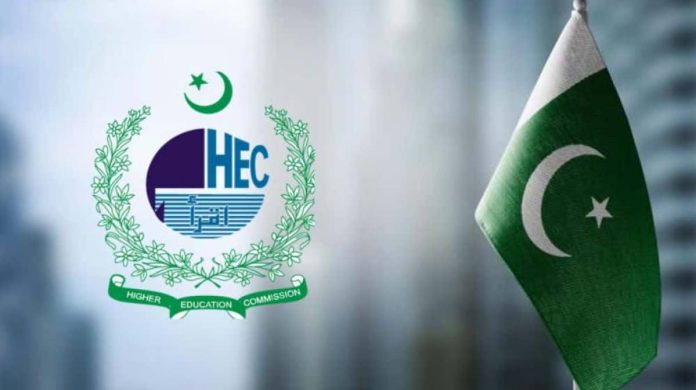- Advertisement -
ISLAMABAD, Jan 16 (APP):A three-day conference on higher education in South Asia concluded in Islamabad on Thursday with a groundbreaking resolution to enhance regional cooperation in higher education and research.
The event, titled “Promotion of South Asia Regional Cooperation in Higher Education” (PSARCHE-2025), was organized by the Higher Education Commission (HEC) of Pakistan in collaboration with the World Bank under the Higher Education Development in Pakistan (HEDP) project.
Representatives from Bangladesh, Bhutan, Maldives, Nepal, Pakistan, and Sri Lanka attended the conference, which served as a dynamic forum for academic leaders, policymakers, and experts to discuss strategies for equipping South Asian youth with the skills needed to thrive in a rapidly evolving global economy.
Discussions focused on aligning higher education systems with labor market trends, leveraging advancements in artificial intelligence (AI) and online distance learning (ODL), and fostering innovation, research, and commercialization to drive socio-economic development in the region.
The conference concluded with a collective resolution, pledging to foster regional collaboration by promoting knowledge sharing, academic mobility, and joint research initiatives.
Delegates underscored the transformative role of digital technologies, committing to integrate AI, cloud computing, and
advanced education technology to modernize teaching, learning, and governance across South Asia. Inclusivity and equitable access to education also featured prominently in the resolution, with participants committing to empower women through leadership programs, enhance faculty and management training, and create a future-ready educational ecosystem.
HEC Chairman Dr. Mukhtar Ahmed, in his closing remarks, lauded the collaborative spirit demonstrated by the participating nations. “I am the happiest person in the room to witness this remarkable collaboration among South Asian countries.
These nations not only share borders but also common challenges. Education diplomacy is the way forward, and I assure you that HEC Pakistan’s doors will always remain open for such partnerships,” he said.
Dr. Ahmed emphasized the importance of cross-border research collaborations and proposed that such conferences be institutionalized as regular events to sustain momentum in regional cooperation.
Throughout the conference, experts explored the need for practical solutions to pressing regional issues and deliberated on strengthening educational frameworks to meet future demands. Plenary sessions addressed critical themes such as research innovation, commercialization, and opportunities for collaboration in higher education. Panelists discussed ways to enhance the societal impact of research and expand cross-border academic partnerships.
A question-and-answer session, moderated by Dr. Harsha Aturupane, Regional Higher Education Coordinator for the World Bank, provided further insights into avenues for collaboration. Panelists included senior education officials from participating nations, such as Dr. SMA Faiz of Bangladesh’s University Grants Commission, Dr. Dev Raj Adhikari of Nepal, Ms. Ugyen Tshomo of Bhutan, Dr. Kapila Seneviratne of Sri Lanka, and Ahmed Shafeeu, Minister of State for Higher Education of Maldives.
The session explored topics including student exchanges, scholarships, and the creation of regular platforms for dialogue and partnership.
By the end of the conference, the participating nations had set a vision to create a robust, interconnected higher education system capable of addressing the challenges of the 21st century.
The collective determination of these South Asian nations marked a significant step toward fostering regional unity through education, innovation, and shared prosperity.

